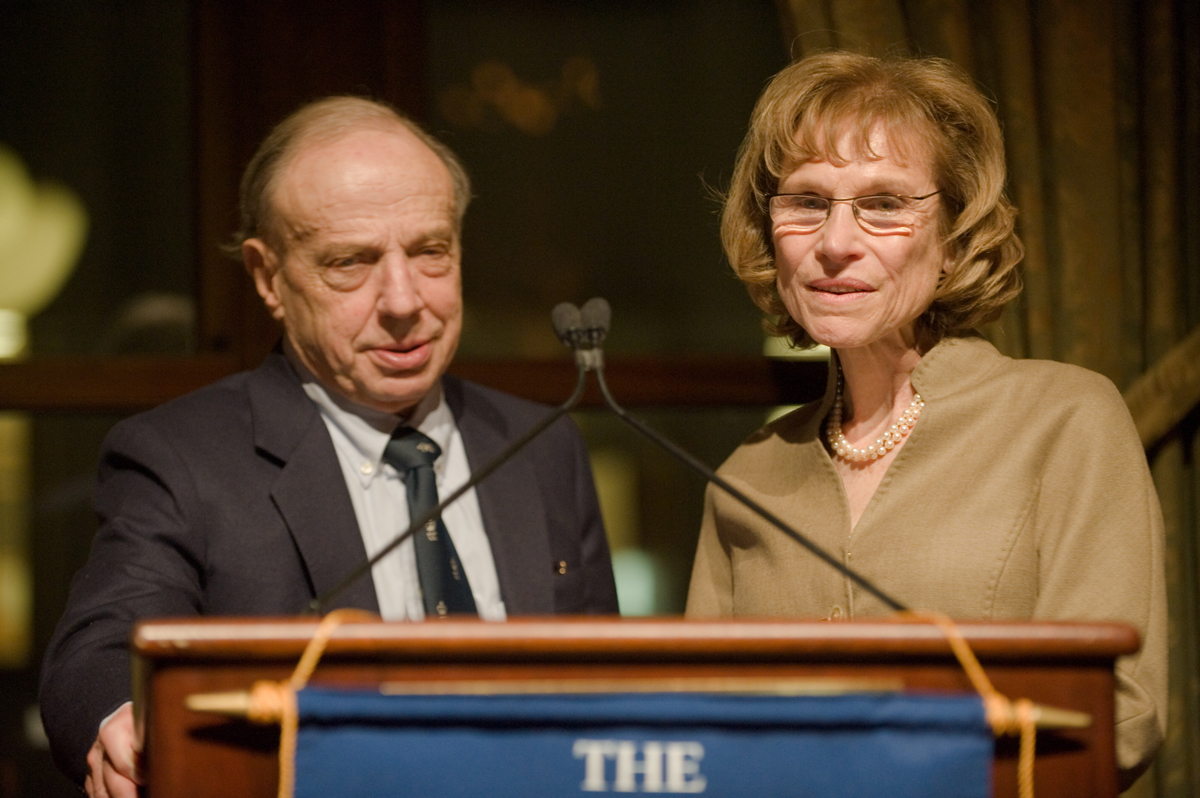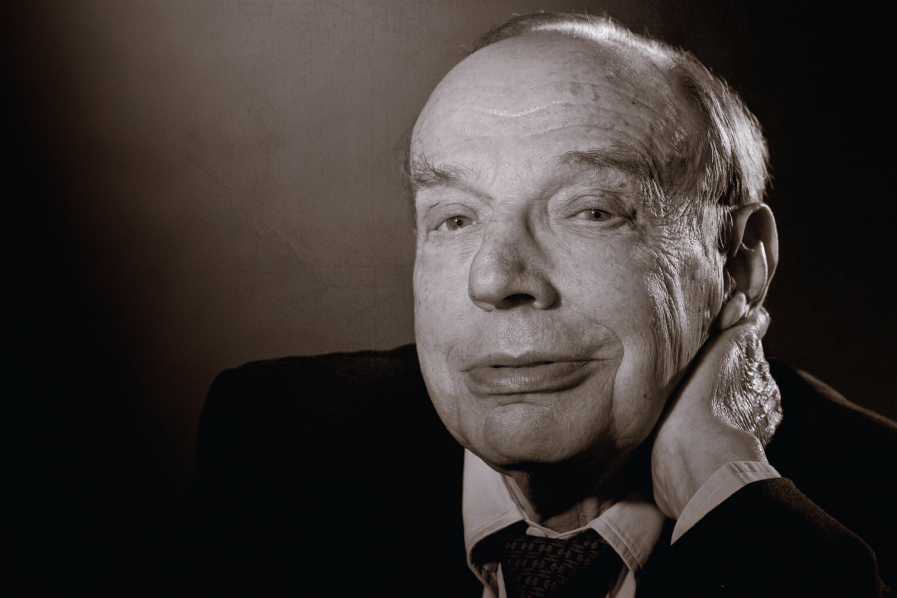As the conversation evolved and the thinking deepened, as it always did in a Pearl Kane classroom, John's presence diminished. The trustee whose name we all knew so well receded into the background, choosing to sit and listen. He was matter-of-fact about the role that independent schooling played in his life and then left the rest to us. It felt like a remarkable gesture at the time, but in learning more about him since, my guess is that it was less a gesture and more just the way in which he moved about the world. . .
As that recollection, penned by Paul Burke, Head of School at New York City’s Nightingale Bamford School, suggests, the late John Klingenstein was a man whose actions spoke louder than his words.
Almost universally described as “quiet,” “self-effacing” and “low-key,” Klingenstein – who passed away in August – was the most generous donor in TC’s history, with his wife, Pat, giving some $55 million to the College during his 40-plus years as a Trustee and Trustee Emeritus.
A graduate of Deerfield Academy, Klingenstein believed deeply in the power of independent schools to build character, stimulate inquiring minds and instill civic values. In 1977, working with consultants from the Alfred P. Sloane Foundation, he spun that vision into The Klingenstein Center for Independent School Leadership, now the preeminent organization for preparing leaders of independent schools. And in 2008, the Klingensteins made a $20 million bequest – realized in 2018 – that ensured that the Center will retain that status for decades to come.
But John Klingenstein’s contributions went far beyond signing checks.
“There was wisdom in John’s philanthropy,” said Pearl Rock Kane, who served as the Klingenstein Center’s Director from 1980 until this past summer. “He believed that what makes independent schools successful is not lavish facilities or buildings but the exceptional people who lead schools as administrators and teachers. And he understood that leadership behavior is not necessarily bestowed on someone because they have a title – principal, dean, school head, for example. Leadership is a behavior that can be practiced at any level in a school, a teacher in the classroom or out of the classroom, a coach on the playing field, an advisor counseling a student to learn from mistakes, or a school head.”

Support the Pearl Rock Kane Scholarship Fund for Independent School Leadership
No one better embodied Klingenstein’s leadership philosophy than Kane herself, who last spring received TC’s President’s Medal in a special ceremony held at the American Museum of Natural History. (Kane remains a member of TC’s faculty.) At that event, then TC President Susan Fuhrman praised Kane for her “transformative leadership” and its “multiplier effect – the vast ripple effect that a single great leader and teacher like you can set in motion.” And Fuhrman also announced the creation of the Pearl Rock Kane Endowed Scholarship Fund, which will benefit students enrolled in the programs of the Klingenstein Center.
Of course, the ultimate mark of a great institution is its ability to thrive in new hands. Since September 2018, the Center has done just that under its new Director, Nicole Brittingham Furlonge, a former Klingenstein Center instructor who had served most recently as English Department Chair and Director of Teaching and Learning at The Holderness School in New Hampshire.
“I’m honored and excited to have the opportunity to lead the Klingenstein Center, and to combine my practice in independent schools with designing learning experiences for adults and students,” said Furlonge when her appointment was announced. “The common thread of the Klingenstein experience is a focus on leadership as a habit of mind, and on the opportunity to be an educator-citizen who co-designs the school culture. That focus has grown out of Pearl Kane’s remarkable capacity to imagine, design and implement beyond what is – and that’s what I most want to uphold and build upon.”
If John Klingenstein were watching, he probably wouldn’t say much. Which would mean that he was very pleased indeed.
